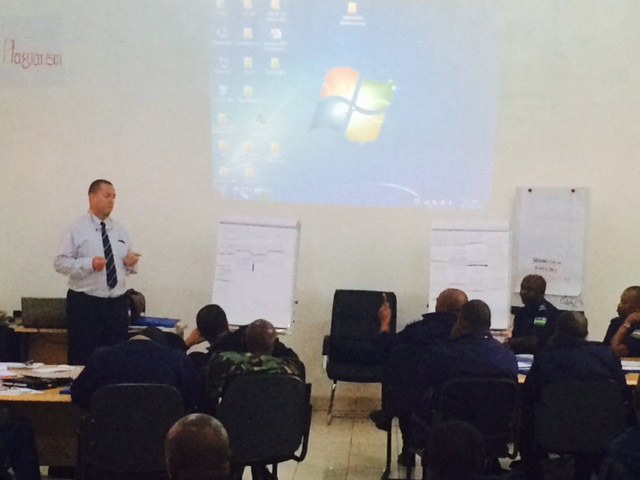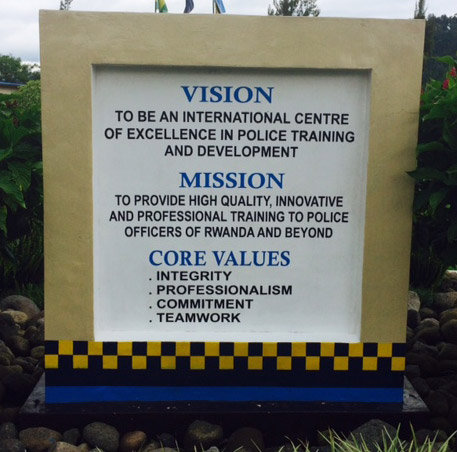Day 8 - South East Central African Strategic Command Course, Rwanda
Day eight of the course comprises a review, or debrief, of the strategic command exercise, says Editorial Advisory Panel Member Roger Gomm.

Picture above: Huw leading the structured debrief using two boards to identify the negative and positives from the experience
We asked the students to reflect on their role as the Gold Commander during the past two days, identifying 'what went well, what did not go well and what they would do in the future in a similar role'. This is an important process for the students as it allows them to think about what they have learnt from the course and how they could use it in the future.
One of the most important lesson the students identified was the need to 'think', not 'react' or 'respond' to information, recognising that the role of the Gold/Strategic level is to ensure the Commander attains a situational awareness and that this requires leadership to achieve.
It has to be created and maintained by a multi-agency group that comprises many different agencies, each with their own perspectives. If situational awreness is to be shared and used by the group effectively, it has to be accepted as the definitive basis of collective decision-making at a given time. This means that representatives of each agency must not only contribute to it and help shape it; they must also satisfy themselves that they agree with it.
This was followed by the decision making and logging. The students recognised the need for decisions to be reasonable and defensible at the time, rather than being driven by a concern with being “right”, when this assessment is only possible with hindsight. This may sound obvious and easy to achieve, but under pressure when events are unfolding this is not so easy! A key word identified was 'understanding' (this proved they were listening to my sessions last week). In the context of decision-making, understanding is the perception and interpretation of a particular situation in order to provide the context, insight and foresight required for effective decision-making. Again, this is easy to say or write here, but not so easy to achieve unless a process is place.
After identifying the positive and negative issues, the students are asked to reflect on how they will use it in the future to develop a 'personal action plan'.

Right: The Rwanda Police College is striving to be the best in Africa. Interestingly, like Ed Miliband, it has set out its Mission Vision and Core Values in stone! It is position in the forecourt for all the students passing through the College to view on a daily basis.
This evening we have a thank you party with the students, hopefully there will be no sore heads in the morning as we have a final day’s training to deliver.
Roger Gomm, 07/05/2015